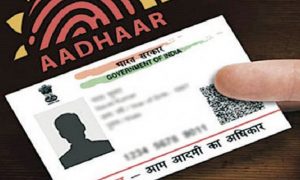My father is looking to sell some land that has been in his possession for more than 8 years for around ₹22 lakh. Does he need to pay long-term capital gains (LTCG) tax? Can he send me the proceeds as a gift so that I can buy a house in next one month?
—Name withheld on request
We assume that the land held by your father, is not an agricultural land and that you qualify as a major for tax purposes. As the land held by your father is a long-term capital asset (since held for more than 24 months), any gains arising from transfer of the same shall be taxable in your father’s hands as (LTCG.
As per the Income-tax Act, a deduction can be claimed against the LTCG arising from sale of such land, as prescribed, in case the net sales consideration is reinvested by the assessee for purchase of residential house property (new asset) in India within the prescribed time limits and subject to fulfillment of other specified conditions. A deduction against the LTCG may also be claimed by investing into specified assets such as bonds, subject to prescribed conditions and limits.
Read More : Avalon Technologies’ Rs 865 Crore IPO Opens Today: Key Things To Keep In Mind
To claim deduction from LTCG, the re-investment of net sales consideration is required to be done by the owner of the original asset. Hence, your father could be eligible for this deduction only if the net sales consideration is reinvested by him in a residential house. In case your father gifts the sale proceeds from the land to you instead of reinvesting it himself, the above deduction may not be available to him. There are few judicial precedents which support that it is not mandatory that such reinvestment in new asset should be in the name of original owner only for the purpose of this deduction, however the same is not free from doubt. Do note that any gift of money or property by a father is not taxable in the hands of the recipient.
My wife worked for a company for exactly 4 years and 10 months. Is she eligible for gratuity? How can she prove her claim?
We understand that your wife has been working with a company/establishment (not being a seasonal establishment) to which The Payment of Gratuity Act , 1972, (POGA) is applicable.
Gratuity is payable to an employee upon termination of employment (on superannuation/ retirement/ resignation etc.), after rendering continuous service for not less than five years (except in case of death or disablement, where this condition does not apply).
Further, where an employee is not in continuous service for any period of one year, then such employee shall be deemed to be in continuous service for such period if the employee has, in the preceding 12 months period, actually worked under the said employer for:
Also Read- PM Narendra Modi To Flag Off Secunderabad-Tirupati Vande Bharat Express On April 8; Check Details
1. A period of 190 days, if the establishment works for 5 days or less in a week;
2. A period of 240 days or more, in any other case
Since your wife has worked for her employer for a continuous period of 4 years 10 months (i.e. more than 4 years and 240 days), she should be eligible for gratuity.
Parizad Sirwalla is partner and head, global mobility services, tax, KPMG in India.





































